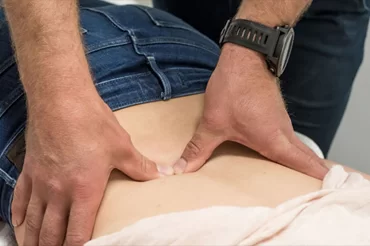Many people think visiting the local physiotherapist is only necessary if you need rehabilitation after an injury or surgery. You may even need to attend a few sessions if you’re looking to improve your mobility or as a way to address chronic pain.
There are, however, a few other reasons why many people visit the physio Noosa Junction locals rely on for everything from occupational therapy to group exercise classes. If you’re suffering from a painful condition, a few sessions with your physiotherapist may be just what you need.
More than Just Rehab
Physiotherapists can provide you with more than just physical rehab after an injury or surgical procedure. Our team of experts has compiled a list of the top services you can use at a physiotherapy centre.
Sports and Musculoskeletal Physiotherapy
Sports therapy doesn’t only refer to injuries that you may have developed while performing a spring activity. Any activity that may hamper any future movement is often called a sports injury.
Physiotherapists will often treat the following conditions:
- Hip and groin pain
- Knee pain (includes patella femoral pain, meniscal tears, and ligamentous injuries)
- ACL reconstructions
- Rotator cuff injury or surgery
- Overuse injuries such as stress reactions/fractures and tendinopathy
- TMJ and Jaw pain
- Pre and post-surgical rehabilitation
- Tennis elbow
Myotherapy
If you’re routinely suffering from migraines or arthritis, or you’re dealing with an old or new muscle injury, you may benefit from myotherapy. Essentially, myotherapy is a form of physical therapy that is used to prevent or treat soft tissue pain. It’s also an effective way to treat joint pain caused by myofascial or muscle pain.
During myotherapy, the immediate symptoms and the underlying cause are treated. This is done in a variety of ways including the following:
- Cupping
- Dry needling
- Trigger point therapy
- Electrotherapy
- Remedial massage
Paediatric Physiotherapy
Essentially, paediatric physiotherapy involves the treatment of pre and post-op rehab services for the younger members of your family. These commonly include:
- MPFL reconstruction
- ACL reconstruction
- Ankle & shoulder stabilisation surgery
- Spinal surgery – scoliosis correction
- Joint replacements – knees and hips
A physio can also assess and manage minor developmental delays and related conditions. They will assist the family with realistic expectations of how the child will be able to move and function. This includes treatments for conditions such as:
- Torticollis
- Plagiocephaly
- Brachial Plexus Palsy
Men’s Health
Many physiotherapy centres will also have pelvic health specialists on staff who focus extensively on a wide range of men’s health conditions. The most common of these include:
- Dealing with the effects of prostate cancer and prostate surgery (such as incontinence and bladder retraining)
- Bladder urgency, frequency, and incontinence
- Pelvic pain
- Pre and post-radical prostatectomy
These treatments will always begin with a comprehensive assessment and review of the latest medical records. Where necessary, the physiotherapist will work closely with GPs, urologists, and other doctors involved in your treatment.
Women’s Health
There is also an extensive list of women’s health conditions that can be treated by your physiotherapist. These typically include:
- Pre and postnatal care
- Breast cancer services
- Incontinence
- Breast care
- Prolapse
Osteopathy
The area of osteopathy generally focuses on the treatment of the neuro-musculoskeletal system. This means that these specialists will aid with the rehab of muscles, bones, nerves, and soft tissues that support daily movement.
Osteopathy often involves treating the following musculoskeletal injuries such as:
- Low back pain
- Neck pain
- Headaches
- Shoulder and hip pain
- TMJ and jaw pain
- Increasing functional capacity and decreasing pain
Common treatments include hands-on methods such as:
- Spinal manipulation
- Soft tissue massage techniques
- Gentle rhythmic joint movements
Massage Therapy
Some ailments benefit extensively from regular, and correctly applied massage. In this instances, your physiotherapist will offer a range of massage therapies that can include a few of the following:
- Remedial massage as the Swedish massage and deep pressure massage
- Pregnancy massage to ease pregnancy-related aches and pains
- Postnatal massage
- Relaxation massages to soothe the nervous system
Group Exercise Classes
Some physiotherapy centres will also offer reformer Pilates classes which are primarily run by musculoskeletal physiotherapists. Classes usually run for 40 minutes and have a maximum of three participants.
Smaller classes make it easy for the physiotherapist to give each participant the care and guidance needed to treat their particular ailment. Training starts with an extensive assessment of your current condition and strength abilities. Your physio will then design a Pilates reformer programme tailored to your abilities and strength levels. This ensures that you get the most out of your session from the first day.
Final Thoughts
If you or someone in your family is suffering from constant chronic pain, or you’re just not recovering from an injury the way you should, it may be time to consult a physiotherapist. You’ll not only prevent future injuries but also find some much-needed relief for existing conditions.
